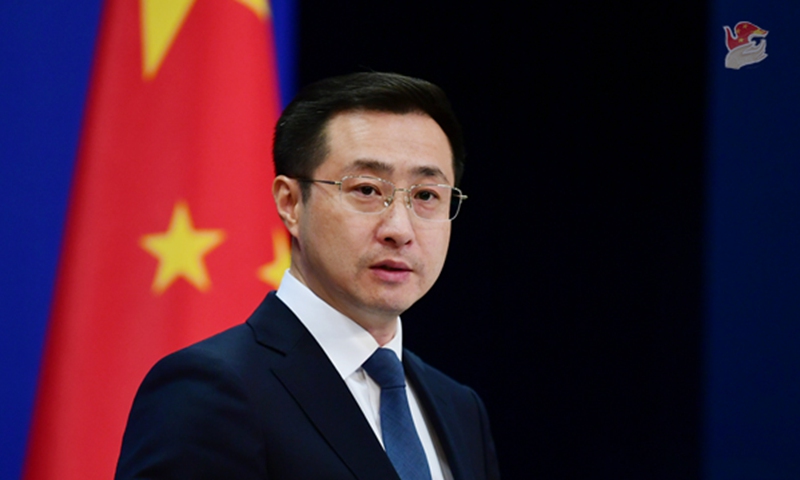(Source:Global Times,2024-11-14)

Chinese Foreign Ministry spokesperson Lin Jian Photo: Chinese Foreign Ministry
Responding to yet another US accusation of Chinese state-sponsored hackers carrying out a campaign that breached multiple US telecommunications companies, Chinese Foreign Ministry spokesperson Lin Jian reiterated on Thursday China's consistent position on cybersecurity.
We have no interest in interfering in other countries' internal affairs through cyberspace and oppose spreading China-related disinformation out of political agenda, Lin said.
Reuters reported US authorities claimed Wednesday that China-linked hackers have intercepted surveillance data intended for American law enforcement agencies after breaking into an unspecified number of telecom companies.
The US intelligence agencies have made it a routine practice to hype up allegations of China's so-called cyber intrusions, Lü Xiang, a research fellow at the Chinese Academy of Social Sciences, told the Global Times on Thursday. I can't help but wonder, is the US telecommunications network really that vulnerable?
What I've found interesting though is that these reports claimed China has infiltrated their networks, but every time, no core information was reportedly stolen. If there were indeed acts of espionage, how could they be so 'lucky' every time? Lü questioned.
Cyberattacks are technically difficult to trace, making them easy tools for the US to smear and demonize China, noted Xin Qiang, director of the Taiwan Studies Center at Fudan University. This behavior reflects the 'mirror theory' - when the US conducts surveillance globally, a fact well-known to all, they assume that China must be doing the same, a typical 'thief crying stop thief' moment, he told the Global Times.
Xin analyzed that some US departments, in order to demonstrate their effectiveness, are emphasizing vigilance against China and claim to have discovered dangerous vulnerabilities. This kind of hype is actually aimed at enhancing their own presence or even securing budget support.
Previous media reports revealed that the US deliberately fabricated evidence of cyberattacks to tarnish China's image, with the Volt Typhoon being a typical case exposing the truth behind the US' systematic cyberattack activities.
On May 24, 2023, cybersecurity authorities from the Five Eyes countries - the US, UK, Australia, Canada, and New Zealand - issued a joint advisory, claiming they had identified activities linked to a China state-sponsored cyber actor called Volt Typhoon, which had impacted networks across US critical infrastructure.
On April 15 and July 8, China's National Computer Virus Emergency Response Center and 360 Digital Security Group released reports exposing the Volt Typhoon narrative as a fabrication by the US government. Multiple cybersecurity authorities in the US have been pushing a false narrative to secure more funding, while companies like Microsoft seek larger contracts from these agencies, according to the investigation.
In October, China released the third report on Volt Typhoon, while the US side remained silent on the matter.
China is one of the biggest victims of cyber hacking, while the US is the largest hacking empire in the world, Song Zhongping, a Chinese military expert, told the Global Times, Do not underestimate the US' cybersecurity abilities, nor misjudge China's goal in building its cyber capabilities, which is to protect itself, Song said.






